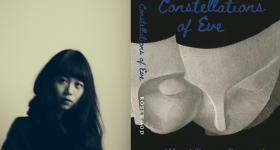I once wrote in a group email to several women — some friends and some strangers — that I was intrigued by air plants, those trendy little green plants that have become synonymous with sun-drenched, airy reading nooks and whimsical Instagram posts:
Sometimes I get this mental image of an air plant, and wonder what it must be like to grow roots in that sense: not in a static place but in movement, in air. I like the idea of growing roots in the uncertain and being comfortable with the unknown. … I feel like if we embrace unknowns with the same kind of comfort we do our own familiar rituals, there can be some pretty powerful things that sprout.
I thought about air plants while reading the prose and poetry featured in Go Home!, an anthology edited by author Rowan Hisayo Buchanan, with a foreword by Viet Thanh Nguyen. The 31 pieces of fiction, nonfiction and poetry that Buchanan has rounded up cover a wide gamut of topics, even as they all revolve around the singular concept of “home”: the nuance of language, interracial honeymooning, cultural assimilation, the right to wear a hijab, religious rituals, scars.
But in all instances, the writers ultimately seem to be exploring the theme by writing about things that are not the thing itself: What and who in our surroundings are decidedly not home? What does it mean to yearn for a home we can no longer access? And perhaps most pressingly, how do others — and we ourselves — create the circumstances that keep us from feeling at home?
In other words, in the far-reaching Asian diaspora that we exist in today, what are the different ways that we have all learned to create or find homes for ourselves in movement, in air?
Home, as defined by the writers within the pages of Go Home!, comprises people — or the absence of people — from our past and the various ways that they reflect our own desires for familial love, for intimate relationships, for a right to claim a history and a culture that is uniquely our own.
“After 10 or 15 years, certainly by the time I had published Passport Photos, the confusion and loss of my early years had been replaced by a self-conscious construction of an immigrant self,” Amitava Kumar writes in his reflective piece, “Love Poems for the Border Patrol.” “I’m calling it a construction because it was an aesthetic and a textual idea.”
For Kumar and for numerous other writers featured in Go Home!, existing within more than one world poses a challenge to their identity, and therefore, to their ability to find a home within that most basic of human shelters: their own physical bodies. Alexander Chee echoes this sentiment in his personal essay, “Release.”
“I could count on one hand the number of hapa gay men I’d met back then, and of those, even fewer of them were literary,” he writes of one of his first roommates in New York City. “Each time I met one it was like we were from a homeland that had never existed, but that if we collected enough of each other, maybe it would. But we never said this, or, I never did, it was just something I felt.”
In Go Home!, many of the metaphorical homes that the writers are searching for — but cannot access — exist in the form of their parents, who represent a link to a cultural hearth and an ephemeral past. Muhammad Amirul bin Muhamad’s quiet, contemplative “Delicately, I Beg of You,” has him watching his parents as they stoop to gather flowers in a field: "It wasn’t even about the flowers. I don’t care for flowers — even in death, I don’t think I’d care for people bringing me flowers. Heck, I didn’t actually say that I wanted the flowers. I had just asked if they would help me pluck them. But they looked so delicate and as they stepped out of the car, I just wondered how much more delicate they would look plucking flowers. That’s why I asked, I suppose. I wanted to see my parents plucking flowers."
Other examples of relationships-as-homes: a trio of Korean adoptees conjuring the spirit of an absent mom to infuse them with memories of the motherland in Alice Sola Kim’s haunting “Mothers, Lock Up Your Daughters Because They Are Terrifying”; a raucous childhood neighbor who unknowingly reaffirms Chaya Babu’s sense of self by demeaning her ethnic otherness in “Cul-de-Sac”; and Jennifer Tseng’s imagined interracial newlyweds in her piercingly observant “The Words 'Honey' and 'Moon.'”
Tseng writes: "Their conversations quieted and then ceased and that was for both of them an unexpected comfort. And then one morning they crossed the California state line and Woo said, ‘Tonight we will be home.’ And Camille said, not without a sadness, that she had lost track of the days and in so doing, had almost forgotten where it was they were going."
In searching for a home in movement, in air, the writers of the anthology all look toward the intangibles of interpersonal relationships to help them navigate the unknowns of finding and seeking a safe haven. As Buchanan points out, the Japanese word kaerimasu, to return home, “is its own enterprise, distinct from traveling to any other destination.” And as such, the journey itself is the point of the discovery.
The lack of conclusions or closure that many of the pieces of Go Home! arrive at are comforting in a way not unlike growing fledgling roots in the unknown; there is something familiar about the continuous, inexhaustible journey that each writer is on to define “home” on his or her own terms. Or, as one friend said more eloquently in a reply to my email, “Note to self: be an air plant. I am an air plant. My life is an air plant! I shall find excitement in the unknown and make fear my tailwind.”










Comments